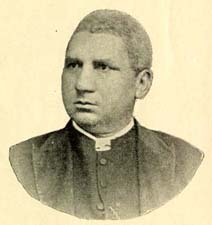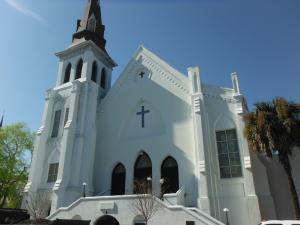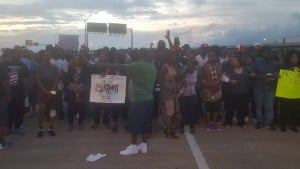In recognition of the 100th anniversary of the death of Bishop Henry McNeal Turner (February 1, 1834-May 8, 2015)
Turner’s emigration thoughts grew stronger when the Supreme Court declared the 1875 Civil Rights bill unconstitutional. For Turner, the decision nullified many of the rights that African Americans gained during Reconstruction. In an open letter to B K Sampson of Memphis, Tennessee, Turner criticized leaders who called upon African Americans to take a more “conservative” or “moderate” policy after the decision. After offering four reasons why the decision of the Court was wrong, Turner wrote
I think, however, I have written enough to convince you that the decision merits no moderate talk; that it should be branded, battle-axed, sawed, cut and carved with the most bitter epithets and AME Zion blistering denunciations that words can express. We want fire-eaters now, a thousand times more than we do conservatives. This nation deserves and will receive, if it lets that decision stand, the hiss of man, the curse of God and the ridicule of all ages. And I think it is wrong in you, sir, to teach the young men of our race that is manly to sit still under any such diabolical decision (41).
Turner closed his letter by writing
Now I ask, shall we sit still and be conservative, hold our peace and submit to the degradation? I hope, sir, you will not say yes. You cannot afford to do it. No, not as a member of the Negro race. If the decision is correct, the United States constitution is a dirty rag, a cheat, a libel, and ought to be spit upon by every Negro in the land. More, if the decision is correct and is accepted by the country, then prepare to return to Africa, or get ready for examination (42).
Another issue for Turner was that of unification with other black Methodist bodies. Speaking in apocalyptic language to the AME, AME Zion and CME Churches, Turner charged that it was argued “time to awaken from your slumbers.
No time for divisions, schisms, strife, contentions and foolishness now. Do you see that Dred Scott decision peeping out of its supposed tomb, fixing up for a resurrection? Do you see the heart of Pharaoh hardening again? Do you see the gathering clouds thickening over our heads? Do you see the black squadrons, calamity, harnessing themselves for another charge of pestilence and death? Do you hear the vengeance of an insulted God bickering in the heavens? Do you not feel the quaking of the earth beneath your feet? I repeat, it is time to awake. Read the history of the world, and you will find one revolution always calls for another. That decision is the first blast of the next. Laugh, smile, grin, say he is crazy, a monomaniac, or whatever you choose, but it is coming! coming!! coming!!! We need unity and we need it badly (46).
Turner continued to call for unity between the two denominations throughout his career. In another editorial, frustrated that “Methodism is now split up into about thirty separate sects, all resting upon the shoulders of John Wesley,” Turner wondered, “where will this thing end?” Further, he commented
I pray heaven, however, that the committees of the A. M. E. Church and A. M. E. Z. Church, which are to meet in July, may so adjust matters as to consummate a union between those two great bodies, and thus make one less I am praying two kinds of prayers for the delegates: 1st, that those in favor of the measure may live, be strong, healthy, eloquent and masterly in discussion; 2nd, that those opposed to it may get sick or die, just as God pleases, and never meet the convention; for I believe the man who opposes it will oppose heaven, the salvation of souls and the best interests of the colored race (66).
To be continued…….
All quotes from Turner come from the forthcoming volume, An African American Pastor Before and During the American Civil War. The Literary Archive of Henry McNeal Turner. An African American Bishop During the Post Reconstruction. Volume 4. Edwin Mellen Press. (2015).













